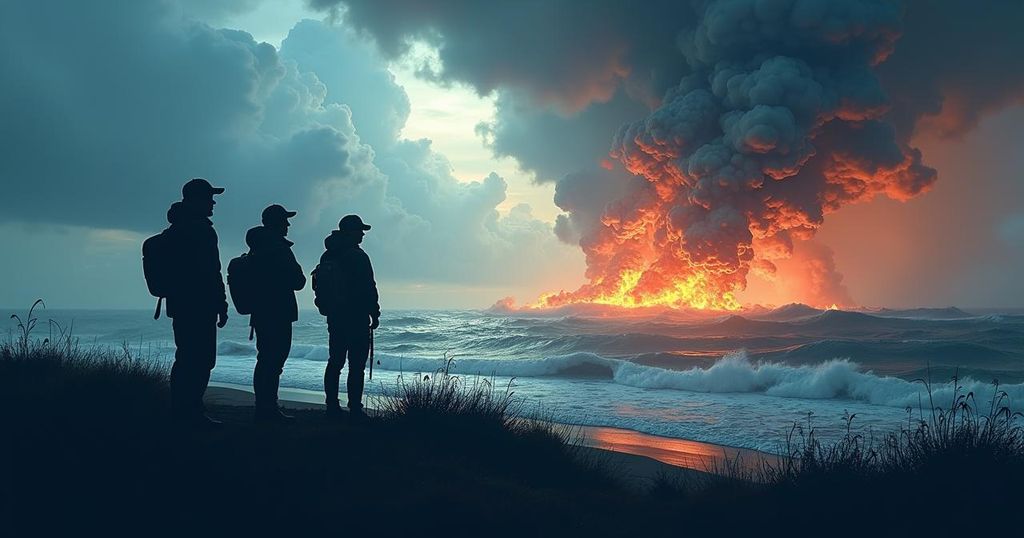The Impact of Climate Change on Natural Disasters: Inside the Experience of Meteorologists
Meteorologists are witnessing firsthand how climate change is exacerbating extreme weather events, as exemplified by Hurricane Milton’s rapid intensification to Category 5. John Morales, a veteran meteorologist, emphasizes the significance of global warming in these developments. As 2024 progresses, record disasters underscore the urgent need for public awareness and response to meteorological warnings concerning climate-related storms.
Meteorologists are currently observing the direct effects of climate change on the frequency and intensity of natural disasters. Denunciations of climate change as a factor in these events are becoming increasingly untenable, especially with the alarming experiences reported in 2024. This year has already seen an alarming uptick in catastrophic weather phenomena, exemplified by the unprecedented emergence of Hurricane Milton, which escalated to Category 5 intensity in mere hours. Such rapid intensification caught many, including established meteorologists, off guard and illustrates the challenges posed by modern climate dynamics. Emblematic of this unsettling reality is John Morales, a prominent meteorologist and Hurricane Specialist for the National Weather Service in South Florida. He has vocalized that global warming is fundamentally altering climatic patterns, contributing significantly to the ferocity of storms. Morales’s recent emotional response while providing updates on Hurricane Milton serves as a stark depiction of the dire situation. “It is just an incredible, incredible, incredible hurricane. It has dropped 50 millibars in 10 hours. I apologize. This is just horrific,” he remarked during his live broadcast. As 2024 unfolds, records indicate some of the most destructive weather events to date, with flash floods ravaging various regions across the world, and intense heatwaves inflicting losses on agriculture and livestock. The intensity with which hurricanes and storms are forming demands immediate attention and proactive measures, urging populations in affected regions to heed professional warnings without skepticism. When a seasoned meteorologist forecasts a powerful storm, the imperative is to accept the information and prepare accordingly.
The relevance of climate change to current weather patterns has become an urgent discussion among scientists and meteorologists. Rising global temperatures are believed to influence a range of meteorological factors that result in unpredictable and severe weather events. In recent years, numerous studies have underscored the connection between climate change and the increased frequency of natural disasters. With scientists on the frontline, meteorologists are leveraging data and emerging weather patterns to help society better prepare for the impacts of these catastrophic storms. In 2024, the world has witnessed record-breaking weather phenomena, including hurricanes and intense flooding, emphasizing the critical need to understand how climate change exacerbates such situations. The overarching narrative drawn from these events is that climate change is no longer a distant threat; it is a present reality impacting millions globally. As communities bear the brunt of these disasters, cultivating a deeper understanding of meteorological insights becomes paramount.
In conclusion, the alarming increase in the severity and frequency of natural disasters is strongly linked to climate change. Meteorologists, exemplified by John Morales, are sounding the alarm regarding the reality of these conditions. The emotional toll and urgency conveyed in meteorological reporting underscore the immediate need for public acknowledgment and appropriate responses to climate-related warnings. With catastrophic storms continuing to emerge, it is imperative for communities to take heed of expert predictions, preparing adequately for the challenges ahead.
Original Source: www.thetravel.com




Post Comment